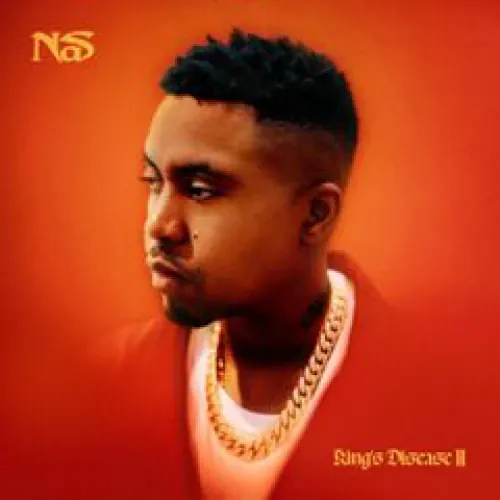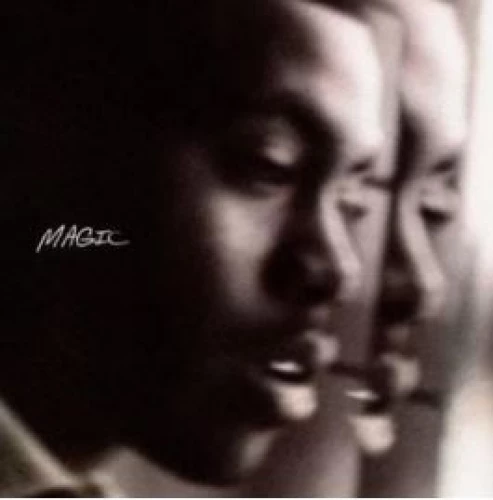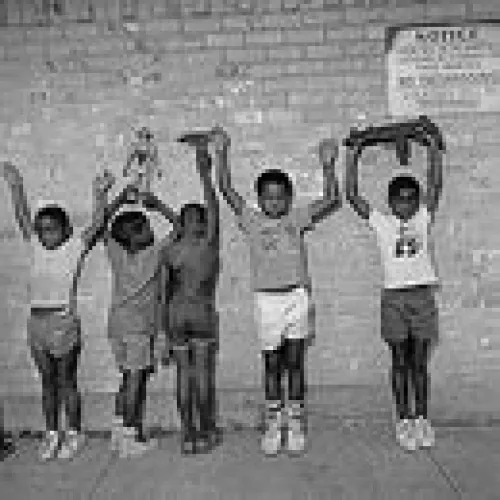
Nas
Top Nas albums
Top Nas lyrics
Nas biography
Heralded instantly as one of New York's leading rap voices, Nas expressed an outspoken, self-empowered swagger that rallied the streets of his city and elsewhere. Whether proclaiming himself "Nasty Nas" or "Nas Escobar" or "Nastradamus" or "God's Son," the self-appointed King of New York battled numerous adversaries for his position atop the epicenter of East Coast rap, none more noteworthy than Jay-Z, who vied with Nas for the vacated throne left in the wake of the Notorious B.I.G.'s 1997 a**a**ination. Such headline-worthy drama informed Nas' provocative rhymes, which he delivered with both a masterful flow and a wise perspective over breathtaking beats by amazing producers: legends like DJ Premier, Large Professor, and Pete Rock; hitmakers like Trackmasters, Timbaland, and Dr. Dre; street favorites like Swizz Beatz, Megahertz, and the Alchemist; and personal favorites of his own like L.E.S., Salaam Remi, and Chucky Thompson. Nas likewise collaborated with some of the industry's leading video directors like Hype Williams and Chris Robinson, presenting singles like "Hate Me Now," "One Mic," and "I Can" with dramatic flair. Throughout all the ups (the acclaim, popularity, and success) and all the downs (the pressure, adversaries, and over-reaching), Nas continually matured as an artist, evolving from a young street disciple to a vain all-knowing sage to a humbled godly teacher. Such growth made every album release an event and prolonged his increasingly storied career to epic proportions. br /br /Born Nasir Jones, son of jazz musician Olu Dara, Nas dropped out of school in the eighth grade, trading cla**rooms for the streets of the rough Queensbridge projects, long fabled as the former stomping ground of Marley Marl and his Juice Crew as immortalized in "The Bridge." Despite dropping out of school, Nas developed a high degree of literacy that would later characterize his rhymes. At the same time, though, he delved into street culture and flirted with danger, such experiences similarly characterizing his rhymes. His synthesis of well-crafted rhetoric and street-glamorous imagery blossomed in 1991 when he connected with Main Source and laid down a fiery verse on "Live at the Barbeque" that earned him instant respect among the East Coast rap scene. Not long afterward, MC Serch of 3rd Ba** approached Nas about contributing a track to the Zebrahead soundtrack. Serch was the soundtrack's executive producer and, like much of New York, had been impressed by "Live at the Barbeque." Nas submitted "Halftime," and the song so stunned Serch that he made it the soundtrack's leadoff track.br /br /Columbia Records meanwhile signed Nas to a major-label contract, and many of New York's finest producers offered their support. DJ Premier, Large Professor, and Pete Rock entered the studio with the young rapper and began work on Illmatic. When Columbia finally released the album in April 1994, it faced high expectations; Illmatic regardless proved just as astounding as it had been billed. It sold very well, spawned multiple hits, and earned unanimous acclaim, followed soon after by cla**ic status. The two years leading up to Nas' follow-up, It Was Written (1996), thus brought another wave of enormous anticipation. The ambitious rapper, who had begun working closely with industry heavyweight Steve Stoute, responded with a significantly different approach than he had taken with Illmatic: where that album had been a straightforward hip-hop album with few pop concessions, the largely Trackmaster-produced It Was Written made numerous concessions to the pop crossover market, most notably on the two hit singles, "Street Dreams" and "If I Ruled the World (Imagine That)." These singles -- both of which drew from well-known songs, Eurythmics' "Sweet Dreams (Are Made of This)" and Kurtis Blow's "If I Ruled the World," respectively -- broadened Nas' appeal greatly and awarded him the MTV-sanctioned crossover success he sought. This same crossover success, however, undermined some of his hip-hop credibility while his subsequent albums -- I Am and Nastradamus (both 1999) -- and their crossover tendencies did so to an even further extent.br /br /Around this point in the late '90s, Nas nonetheless reigned atop the New York rap scene alongside few contemporaries in the wake of the Notorious B.I.G.'s a**a**ination. In addition to his endless stream of hits by the industry's most successful producers -- "If I Ruled the World" (produced by the Trackmasters), "Hate Me Now" (Puff Daddy), "Nas Is Like" (DJ Premier), and "You Owe Me" (Timbaland), among others -- he popularly co-starred in the Hype Williams-directed film Belly (1998) alongside DMX and contributed to the soundtrack. Furthermore, he led a short-lived supergroup of New York rappers known as the Firm (also comprised of rappers Foxy Brown, AZ, and Nature, with producers Dr. Dre and the Trackmasters) and a**embled a broad coalition of fellow Queensbridge rappers for the QB Finest compilation (2000). Amid all of this publicity, though, criticism began to mount. For every crossover fan Nas won with his dramatic MTV-aired videos, he lost support in the streets, where many initial supporters felt he had sold out and abandoned hip-hop ideals in favor of commercial success. Nas' sales reflected this fading support, as each subsequent album sold less than its predecessor despite the consistent hitmaking. br /br /A series of incidents in 2001 provided a key turning point for Nas' declining career. The rapper's personal life became increasingly conflicted, as his mother began suffering from cancer and his woman betrayed him. To make matters worse, longtime rival Jay-Z pointedly dissed Nas on "Takeover," the much-discussed leadoff song from his universally acclaimed Blueprint album (2001). Jay-Z called out Nas for not having put out a "hot" album since Illmatic, among other reasons, and also made demeaning comments about Nas' woman. And it didn't help that Jay-Z had indeed rose atop the New York rap scene, giving him ample justification to call out Nas, who had fallen from favor and receded from the public eye while he dealt with his personal issues. Following a much-circulated underground freestyle over the beat to "Paid in Full," Nas responded strikingly in December 2001 with Stillmatic, the title a reference to his one undeniable masterpiece, Illmatic, which had been released nearly a decade earlier. Most notably, Stillmatic opened with the song "Ether," a very direct response (featuring the chants "f*ck Jay-Z" and "I will not lose"), followed by perhaps Nas' most aggressive single ever, "Get Ur Self A...." These two songs in particular rallied the streets while the moving video for "One Mic" received heavy support from MTV. Throughout 2002, Nas continued his comeback with a number of guest appearances, among them Brandy's "What About Us?," J-Lo's "I'm Gonna Be Alright," and Ja Rule's "The Pledge," as well as yet more headline-worthy controversy, this time involving his no-show at popular radio station Hot 97's annual Summer Jam.br /br /Amid all of the drama, Nas managed to salvage his esteemed reputation and reclaim his lofty status atop the New York scene. Stillmatic earned immediate wide acclaim from fans and critics alike and sold impressively, while Columbia furthered the comeback fervor with two archival releases, one of remixes (From Illmatic to Stillmatic [2002]), the other of outtakes (The Lost Tapes [2002]). Then at the end of the year Columbia released a new studio album, God's Son, and Nas once again basked in widespread acclaim as the album sold well, spawned sizable hits ("Thugz Mansion," "Made You Look," "I Can"), and received rampant media support. Two years later Nas returned with Street's Disciple (2004), a sprawling double album that delved deeply into various issues, most notably politics and his impending marriage to Kelis. The two-sided "Thief's Theme"/"You Know My Style" single dropped in summer 2004, several months before the album's release, and was followed that fall by the proper lead single, "Bridging the Gap." The album sort of came and went, however, without the sort of commercial success that had become customary. More troubling, new kid on the block 50 Cent took a swipe at Nas later that year on "Piggy Bank," further bringing the veteran rapper's present status into question. ~ Jason Birchmeier, All Music Guide



